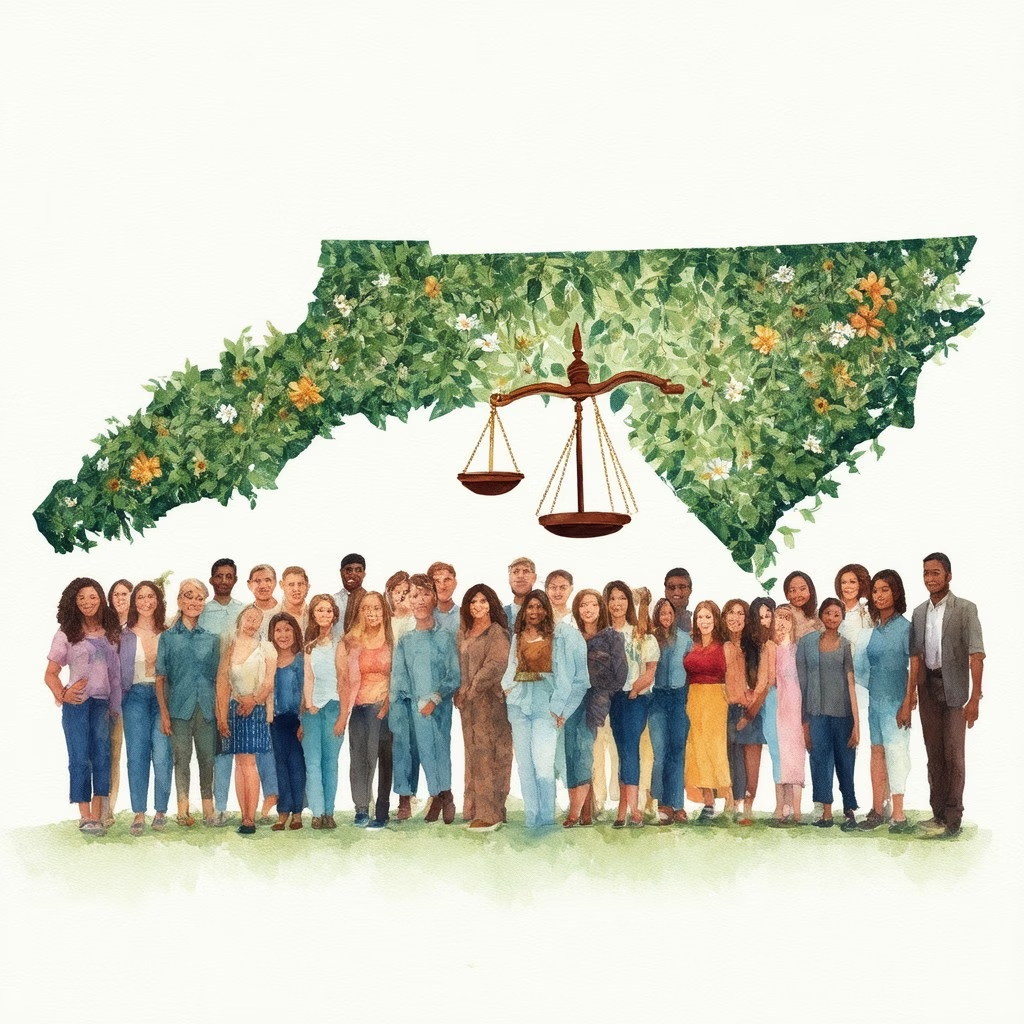Key Takeaways
- The North Carolina Legal Aid Society provides essential legal support to low-income individuals, ensuring access to justice regardless of financial barriers.
- Eligibility for legal aid is typically based on income, with guidelines set at or below 125% of the federal poverty level.
- Free legal help is accessible through various resources, including local legal aid societies, pro bono services, and the NC Free Legal Advice Hotline.
- Understanding your legal rights, especially in matters like divorce and custody, is crucial for effective navigation of legal challenges.
- The online application process for legal aid is convenient and available 24/7, making it easier for individuals to seek necessary assistance.
- Working within the legal aid society offers fulfilling career opportunities that significantly impact community access to legal representation.
Accessing legal support can often feel overwhelming, especially for those facing financial constraints. The North Carolina Legal Aid Society plays a crucial role in bridging this gap, offering essential services to individuals in need. In this article, we will explore who qualifies for legal aid in North Carolina, the steps to obtain a lawyer for free, and the income guidelines that determine eligibility. Additionally, we will delve into specific legal rights concerning divorce, provide contact information for the Legal Aid of North Carolina, and discuss the online application process for legal aid services. Whether you are seeking assistance or considering a career within the legal aid society, this comprehensive guide will equip you with the knowledge you need to navigate your rights and access the support available to you.
Who qualifies for legal aid in North Carolina?
Understanding who qualifies for legal aid in North Carolina is crucial for individuals seeking assistance with legal issues. The legal aid society in North Carolina provides essential services to those who meet specific eligibility criteria, ensuring that everyone has access to justice, regardless of their financial situation. Legal aid is designed to help low-income individuals navigate legal challenges, including housing disputes, family law matters, and more.
Understanding the Legal Aid Society in North Carolina
The legal aid society in North Carolina is a nonprofit organization dedicated to providing free legal assistance to eligible residents. This organization plays a vital role in the community by offering services that address various legal needs. To qualify for assistance, applicants typically must demonstrate financial need, which is assessed based on income and household size. The legal aid society focuses on helping those who cannot afford to hire a private attorney, ensuring that legal representation is accessible to all.
Overview of Legal Aid Services Available in NC
Legal aid services in North Carolina encompass a wide range of legal issues. These include:
- Family law matters, such as divorce and child custody disputes.
- Housing issues, including eviction and landlord-tenant disputes.
- Consumer protection, addressing issues like debt collection and fraud.
- Public benefits, assisting with applications for government assistance programs.
By providing these services, the legal aid society helps individuals navigate complex legal systems and empowers them to advocate for their rights. For more information on the types of assistance available, you can explore resources on understanding legal aid resources.

How to get a lawyer for free in NC?
Accessing legal representation can be a daunting task, especially for those facing financial constraints. Fortunately, North Carolina offers various avenues to obtain free legal help. Understanding the steps involved can empower individuals to navigate the legal landscape effectively.
Steps to Access Free Legal Help in North Carolina
To secure free legal assistance in North Carolina, follow these essential steps:
- Determine Your Eligibility: Assess your financial situation to see if you qualify for legal aid. Most legal aid societies, including the Legal Aid of North Carolina, have specific income guidelines that must be met.
- Contact Legal Aid Societies: Reach out to local legal aid societies. They provide various services, including family law, housing issues, and more. You can find resources through the guide to free legal help.
- Utilize Online Resources: Many legal aid organizations offer online applications and resources. Visit the Legal Services Corporation for additional information on finding legal assistance.
- Seek Pro Bono Services: Some private attorneys offer pro bono services. Check with local bar associations for lists of lawyers willing to provide free legal help.
Utilizing the NC Free Legal Advice Hotline
The NC Free Legal Advice Hotline is a valuable resource for individuals seeking immediate legal guidance. Here’s how to make the most of this service:
- Call the Hotline: Dial the hotline number to speak with a legal professional who can provide initial advice on your legal issue.
- Prepare Your Questions: Before calling, jot down specific questions or concerns you have regarding your legal situation. This preparation will help you maximize the time you have with the attorney.
- Follow Up: If the hotline attorney recommends further action or additional resources, be sure to follow up promptly to ensure you receive the necessary assistance.
For more information on accessing legal aid, you can explore resources like understanding legal aid resources and the navigating free legal services for seniors.
What is the maximum income to qualify for legal aid?
Understanding the income guidelines for legal aid in North Carolina is crucial for individuals seeking assistance from the legal aid society. The Legal Services Corporation sets specific income thresholds that determine eligibility for legal aid services. In North Carolina, these guidelines are designed to ensure that those who genuinely need help can access it without financial barriers.
Income Guidelines for Legal Aid in North Carolina
To qualify for legal aid in North Carolina, applicants must meet certain income criteria, which are typically set at or below 125% of the federal poverty level. This means that for a single individual, the maximum income is approximately $17,000 per year, while a family of four can earn up to about $35,000 annually. These figures may vary slightly based on updates to federal poverty guidelines, so it’s essential to check the most current information.
Legal aid societies in North Carolina provide a range of services, including assistance with housing issues, family law, and consumer protection. By adhering to these income guidelines, the legal aid society ensures that support is directed to those who need it most.
Resources for Checking Eligibility for Legal Aid
To determine if you qualify for legal aid, you can utilize various resources available online. The Legal Aid of North Carolina website offers a straightforward eligibility checker that guides you through the process. Additionally, you can contact the legal aid society directly via their phone number for personalized assistance.
For those who may not meet the income requirements, there are still options available. Pro bono services and low-cost legal assistance programs can provide necessary support. Understanding the legal assistance in NC landscape can empower individuals to find the help they need, regardless of their financial situation.
What is a wife entitled to in a divorce in North Carolina?
In North Carolina, the legal framework surrounding divorce includes specific entitlements for spouses, particularly concerning property division, alimony, and child custody. Understanding these rights is crucial for anyone navigating the complexities of divorce. The legal aid society can provide valuable assistance in these matters, ensuring that individuals are informed of their rights and options.
Legal Rights of Spouses in North Carolina Divorce Cases
During a divorce in North Carolina, both spouses have certain legal rights that are protected under state law. Key entitlements include:
- Equitable Distribution: North Carolina follows the principle of equitable distribution, meaning that marital property is divided fairly, though not necessarily equally. This includes assets acquired during the marriage, such as homes, vehicles, and retirement accounts.
- Alimony: A spouse may be entitled to alimony, which is financial support paid by one spouse to the other during or after the divorce. Factors influencing alimony include the length of the marriage, the financial needs of the receiving spouse, and the ability of the paying spouse to provide support.
- Child Custody and Support: If children are involved, custody arrangements must be made in the best interest of the child. This includes decisions about physical and legal custody, as well as child support obligations.
For those seeking assistance, the Legal Aid of North Carolina offers resources and support for individuals navigating these issues.
Free Legal Aid for Divorce in NC: What You Need to Know
Accessing legal aid can significantly ease the burden of navigating a divorce. Here’s what you should know about obtaining free legal assistance in North Carolina:
- Eligibility: Legal aid services are typically available to low-income individuals. To determine your eligibility, you can contact the Legal Aid of NC or visit their website for detailed income guidelines.
- Types of Services: Legal aid societies provide a range of services, including legal consultations, representation in court, and assistance with paperwork related to divorce proceedings.
- Contacting Legal Aid: To get started, you can reach out to the Legal Aid of North Carolina directly. They can guide you through the process of applying for assistance and help you understand what to expect.
For immediate inquiries, you can also find the Legal Aid of NC phone number on their website, ensuring you have direct access to the help you need.

Legal Aid of NC Phone Number
Contacting the Legal Aid of North Carolina is essential for individuals seeking assistance with legal issues. The legal aid society provides crucial support for low-income residents, ensuring access to justice and legal representation. If you need to reach out for help, the Legal Aid of NC phone number is a vital resource.
How to Contact Legal Aid of North Carolina
To connect with the legal aid society, you can call their main office at (919) 856-2564. This number will direct you to a representative who can provide information about the services available, including assistance with housing, family law, and public benefits. It’s advisable to call during business hours for the best chance of receiving immediate support.
Additionally, you can visit their website for more resources and information on how to apply for legal aid. The guide to free legal help offers insights into the application process and what to expect when seeking assistance.
Importance of Direct Communication with Legal Aid Societies
Direct communication with the legal aid society is crucial for understanding your rights and the legal options available to you. By reaching out, you can clarify eligibility requirements and get tailored advice based on your specific situation. This proactive approach can significantly enhance your chances of receiving the necessary legal assistance.
Moreover, utilizing the Legal Aid of NC phone number allows you to ask questions about the types of cases they handle and the resources they provide. This information is invaluable for individuals who may feel overwhelmed by their legal challenges. For further guidance, consider exploring the understanding legal aid resources page, which outlines financial assistance options and eligibility criteria.
Legal Aid NC Apply Online
Applying for legal aid in North Carolina has become increasingly accessible through online platforms. The Legal Aid of North Carolina offers a streamlined online application process that allows individuals to seek assistance without the need for in-person visits. This method is particularly beneficial for those who may have mobility issues or live in remote areas. By visiting the official website, applicants can fill out necessary forms, submit documentation, and track their application status conveniently.
Online Application Process for Legal Aid in North Carolina
The online application process for legal aid in North Carolina involves several straightforward steps:
- Visit the Legal Aid of North Carolina website: Navigate to the Legal Aid of North Carolina homepage to access the application portal.
- Complete the application form: Fill out the online form with accurate personal information, including income details and the type of legal assistance required.
- Submit supporting documents: Upload any necessary documentation that supports your application, such as proof of income or identification.
- Review and submit: Carefully review your application for accuracy before submitting it for processing.
- Track your application: After submission, you can log in to the portal to check the status of your application and receive updates.
This efficient process not only saves time but also enhances accessibility for those in need of legal assistance. For more detailed guidance, you can refer to our guide to free legal help.
Benefits of Applying for Legal Aid Online
Applying for legal aid online offers numerous advantages:
- Convenience: Applicants can apply from the comfort of their homes, eliminating the need for travel.
- Time-saving: The online process is typically faster than traditional methods, allowing for quicker access to legal assistance.
- Accessibility: Individuals with disabilities or those living in rural areas can easily access services without facing transportation challenges.
- 24/7 Availability: The online application portal is available at all times, enabling applicants to submit their requests at their convenience.
These benefits make the online application process an essential resource for those seeking financial assistance for legal aid in North Carolina.
Legal Aid Society Jobs and Careers
The legal aid society plays a crucial role in providing access to justice for low-income individuals and families in North Carolina. Working for a legal aid society not only offers a fulfilling career path but also allows individuals to make a significant impact in their communities. Legal aid society jobs often include positions such as staff attorneys, paralegals, and administrative support, all of which contribute to the mission of ensuring that everyone has access to legal representation, regardless of their financial situation.
Exploring Career Opportunities within the Legal Aid Society
Career opportunities within the legal aid society are diverse and can cater to various skill sets and interests. Positions typically include:
- Staff Attorneys: These professionals represent clients in legal matters, providing essential legal assistance in areas such as family law, housing, and public benefits.
- Paralegals: Paralegals support attorneys by conducting legal research, drafting documents, and assisting with case preparation, ensuring that clients receive comprehensive legal support.
- Administrative Roles: These positions are vital for the smooth operation of legal aid societies, handling tasks such as client intake, scheduling, and office management.
Working in these roles not only provides a steady career path but also fosters a deep connection to the community, as employees often witness firsthand the positive changes they help bring about in clients’ lives.
The Impact of Legal Aid Society Employment on Community Support
Employment within a legal aid society significantly impacts community support by addressing the legal needs of vulnerable populations. Employees are often involved in outreach programs that educate the public about their legal rights and available resources. This outreach is essential for:
- Raising Awareness: Legal aid societies help inform individuals about their rights and the legal resources available to them, empowering them to seek assistance when needed.
- Building Trust: By providing free legal services, legal aid societies foster trust within the community, encouraging individuals to seek help without fear of financial burden.
- Enhancing Access to Justice: The work of legal aid society employees directly contributes to a more equitable legal system, ensuring that low-income individuals have the representation they deserve.
In summary, careers within the legal aid society not only offer personal fulfillment but also play a vital role in enhancing community support and access to justice for those in need.




